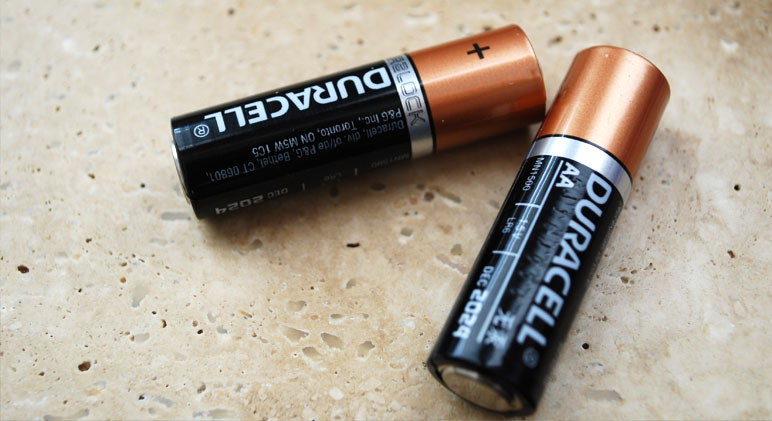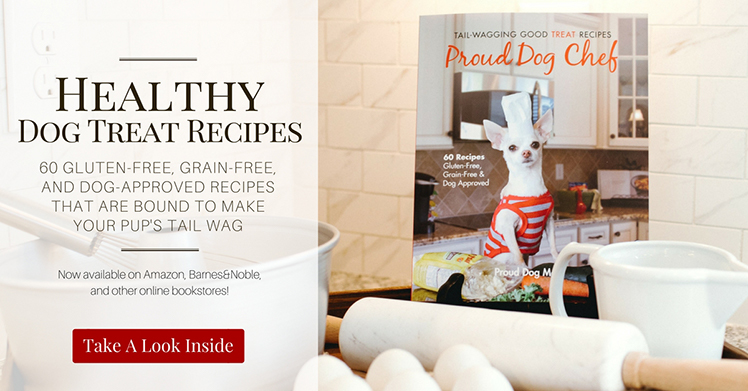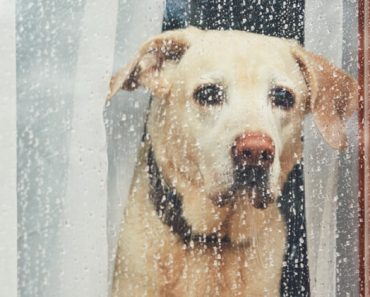Anyone who thinks caring for puppy dogs isn’t similar to raising toddlers, clearly never had a dog! Just like with toddlers, dogs like to explore, make messes, and put everything they can find in their mouth. The problem is – accidental poisonings can happen in an instant. And they do happen every day. When it comes to your dog’s health, prevention is key. So I put together a list of the top 10 common household items that are toxic to your dog.
1) Certain Human Foods
While there are a lot of human foods that are great for your pooch, many items in your pantry and fridge are also highly toxic to your canine kid. Some of the more toxic food items in your kitchen include: onions, grapes, raisins, caffeine, chocolate, seeds and pits from fruits, alcohol, macadamia nuts, and the list can go on. The biggest message here is awareness. Don’t leave any of these items where your pooch can reach them. Additionally, when you are preparing meals, try and be aware if any of that chopped onion falls on the floor. If your dogs are anything like mine, when they see food fly from the counter to the floor, they do that slick, quick, lick-it-up and swallow move. So try not to let it hit the floor in the first place.
2) Cleaning Products
Everything from laundry detergent and drain cleaner to Windex and Tilex — it’s all toxic to your pet. I don’t know about you, but I store most of my chemicals and cleaning products in the cabinet under my kitchen sink. My dogs never go near that area, so it’s a safe place for me to store them. But if your dog knows how to open up ground-level cabinets, you should definitely consider storing them elsewhere. It’s important to keep these products out of your dog’s reach because ingesting even a small amount of such toxic chemicals can have life-threatening effects on your dog. If your dog has ingested bleach-containing products, soaps, cleansers, or other harsh chemicals, contact poison control right away and seek out emergency veterinary care.
3) Garage Chemicals
Along with keeping chemical-laden cleaning products in the kitchen, a lot of people leave harsh outdoor chemicals laying on their garage floor. One of the most dangerous garage chemicals is anti-freeze, which could be deadly if ingested by your pup. If you store car and outdoor chemicals in your garage, place them on a tall shelf so your dog can’t reach them. As I mentioned in #2, if your dog ingests any harsh chemicals, contact poison control immediately and get to your emergency veterinary care office.
4) Batteries
Under no circumstances are batteries chew toys for dogs. Unfortunately, though, many pet parents have come home to find their dogs munching away on the small, shiny items. If your dog punctures the battery, it can result in life-threatening injury to your dog’s mouth, esophagus, stomach, and intestinal tissues.
- Lithium batteries are perhaps the most dangerous. They have the potential to cause severe necrosis to the esophagus or gastrointestinal tract within just 15-30 minutes.
- Alkaline or acidic material batteries can leak out an acidic material that has been known to cause deeply penetrating ulcers.
- Some of the newer batteries allow an electric current to pass through GI tract tissues.
- Other batteries can contain heavy metals, which can lead to heavy metal toxicity.
If you catch your dog munching on batteries, immediately contact poison control and seek out emergency veterinary care.
5) Pennies
Do you ever leave loose change lying around your house? Maybe your purse tipped over and some pennies rolled under the couch. Whatever the case may be, dogs seem to love putting round shiny coins in their mouth… which is a big problem.
Pennies minted after 1982 have a high zinc content, which is dangerous to your pooch. When zinc is absorbed in large quantities, it can destroy red blood cells and cause severe anemia.
If you think your dog has ingested pennies, get to the vet immediately. Your vet will likely take an x-ray and may need to perform surgery to get the pennies out. While removing the zinc-laden object from your dog’s gastrointestinal tract should resolve any adverse health effects, if your dog is suffering from severe anemia they may need a blood transfusion.
6) Human Pharmaceuticals
If your dog has a stomachache, don’t toss him one of your fast-acting pain pills without checking with your vet first! Most prescription drugs and over-the-counter medications are toxic to your pooch and should be kept out of their reach. Don’t leave single pills lying around on nightstands or countertops. You should also store pill bottles in a safe place (like a bathroom medicine cabinet that your pooch can’t access). Remember – just because a pill bottle has a child lock on it, doesn’t mean it’s dog-proof! If your dog does get into your pills, contact poison control immediately. You’ll need to tell them the drug name and approximately how many pills your dog consumed.
7) Veterinary Pharmaceuticals
There are dosing schedules for a reason! Even if a certain medication is intended for your dog, they shouldn’t be consuming an entire pill bottle in one sitting. Make sure to store your pup’s medications far out of their reach. You may not think you have to do this, because why in the world would your dog want to eat pills in the first place? Well, some companies flavor their medications to make them more appealing to your fur kid. Some may taste so good that your dog thinks they’re treats! I know my little guys think their monthly heartworm chew is a treat and they get overly excited to eat it.
8) Certain Plants and Flowers
Even some common plants and flowers (like the Daffodil, Tulip, Azalea, Amaryllis, Oleander, Dieffenbachia, and Sago Palm) are considered poisonous to dogs. If you are someone who enjoys gardening or decorating the house with real flowers and plants, make sure to do a little research first. Or, you can do what I do and buy faux-flowers (don’t laugh – there are some really convincing ones on the market these days)!
9) Fertilizers
According to the Pet Poison Helpline:
“Most ready-to-use fertilizer products intended for the average consumer are not highly toxic but pose a risk for irritant effects such as dermal irritation, vomiting, diarrhea, and inappetence. Exposure to industrial, concentrated, or undiluted products pose a more significant risk for poisoning…”
It’s best to keep your pooch away from your recently fertilized garden OR use something that is organic and pet-friendly.
10) Pest Control Sprays
Whether you live in a house or apartment complex, chances are your living space is regularly sprayed by pest control. Keep your dog away from pest sprays until they are fully dry. After pest control visits my home, I am usually advised to keep my dogs away from the recently sprayed area for at least 20-30 minutes. Also, be careful with do-it-yourself insecticides and rodenticides. Dogs have been known to ingest these products, which can cause health issues.
Please note: This is just an overview of common household items that are dangerous for your pets. Every household is different and may contain other highly toxic products that should be kept far away from your pooch. If you have small kids, make sure to also keep things like play-doh and little lego pieces out of your dog’s mouth. If you have older kids, be careful with paintball pellets and other potentially toxic items.











